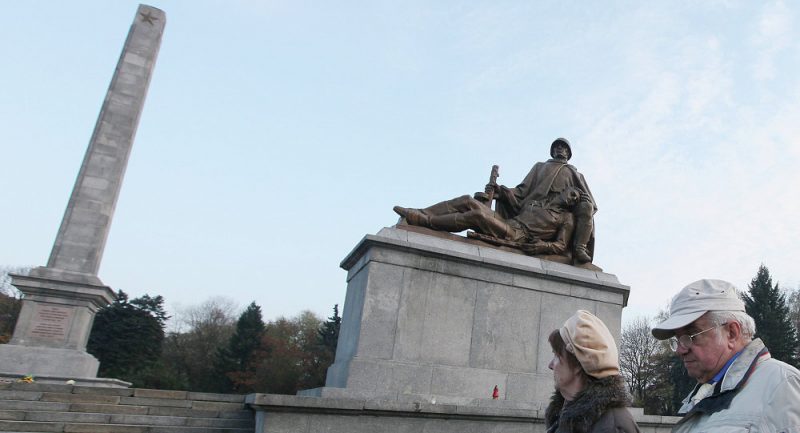The city of Rzeszow, along Poland’s border with Ukraine, has ignored a request to remove a monument from the Soviet-era commemorating the liberation of the city from Nazi occupiers. Last month, Poland’s Institute of National Remembrance (INR) pushed for the immediate removal of 500 similar memorials throughout Poland. Erected in 1950, the Rzeszow monument is a display of “gratitude” to the communist Soviet Red Army for its actions liberating Poland from Nazi Germany.
Spokesman Maciej Chlodnicki gave a statement to the news portal Onet.pl on behalf of the city administration. He felt the monument should not be dismantled. The history is not going to be altered with actions taken today.
“Who liberated Rzeszow? The Red Army, and you cannot argue with that fact. What happened afterwards is a different matter, but you can’t change the facts. Millions of people with no interest in political causes perished in that war.”
The desire to remove these monuments began with Wlodzimierz Nowak, activist for the Center for the Prosecution of Fascist and Communist Criminals. This group has been known to apply pressure to achieve its ends.
Nowak wrote a passionate letter to the City Hall on April 8, 2016, explaining that the very existence of the monument is a mockery of the Polish people. From August 1944 to January 1945, the Soviets occupied their land and killed thousands of Polish patriots.
Nowak stated that the existence of monuments like the one in Rzeszow’s Ghetto Victims Square, the site where roughly 15,000 Jews were collected and sent off to death camps, represent a “desecration.”
“I don’t know what to thank the Red Army for. If they want to worship this monument, they can do it in their own country, but we will not celebrate criminals,” Nowak said. He believed the monument should be replaced with a memorial to the innocent victims killed in WWII.
Nowak’s sentiments trailed an INR campaign urging local authorities to dismantle 500 communist-era monuments this year “before a relevant law is created,” as a means of patching over the country’s rough past.
Andrzej Dec, leader of the local assembly for this city of 200,000 residents, remained relatively quiet on the matter, only stating that any discussion of the demolition of the monument would likely cause differing opinions among the councilmen. To further complicate the issue, the land on which the Rzeszow monument lies was given to a Catholic order ten years ago.
Russia’s foreign ministry, however, did not remain quiet, stating “there will be diplomatic blowback” should any WWII monuments be removed.
“We demand the preservation of genuine history and its symbols,” Maria Zakharova, Foreign Ministry spokesperson, said last month.
Moscow and Poland have already clashed over the removal of prominent Soviet-era obelisks in addition to complicated ideological differences and tensions in the neighboring Ukraine.
